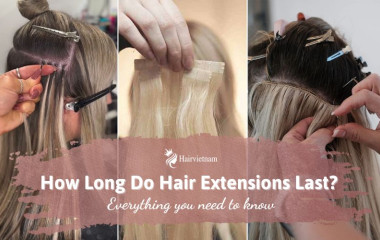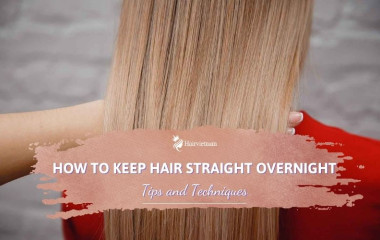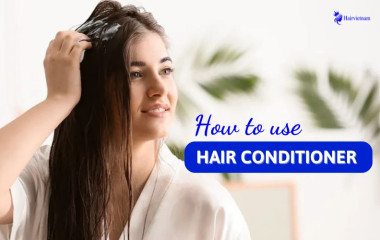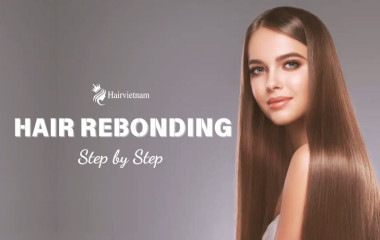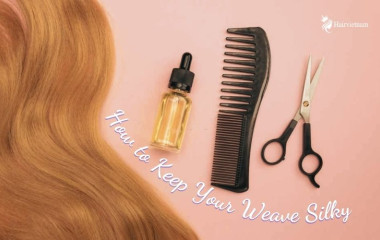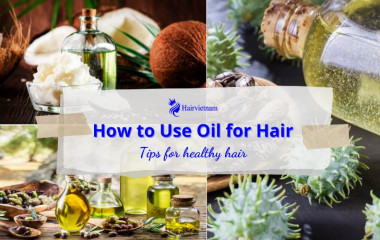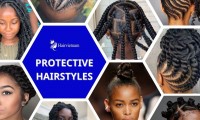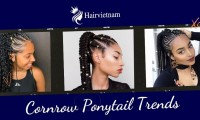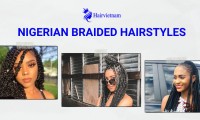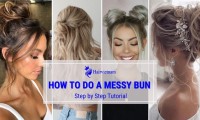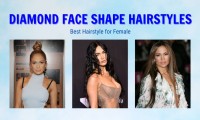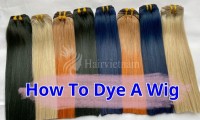What is Coarse Hair? How to make Coarse Hair Soft and Silky
26/10/2023
Content
1. What is Coarse Hair?
Coarse hair is characterized by its thicker and wider strands compared to other hair types. It is known for its strength but lacks flexibility. Genetics primarily determine one's hair type, but external factors like regular heat styling, iron or calcium deficiencies, hypothyroidism, or certain medications can also lead to coarse hair development.
What is Coarse Hair?
One notable feature of coarse hair is its high demand for moisture. Its thickness slows down the absorption of natural oils into the hair shaft, making it prone to faster moisture loss, a slightly rough texture, and dry or split ends. Therefore, coarse hair benefits from extra hydration and conditioning to keep each strand adequately nourished.
A simple test to determine if you have coarse hair is to take a single strand and roll it between your fingers. If it feels solid and thick, it's likely coarse, while thin hair is harder to detect through touch. Understanding your hair type is essential for selecting the right products and routines to address its specific needs.
2. Difference between Coarse and Thick hair
Coarse and thick hair are two terms frequently used interchangeably, but they actually describe distinct hair characteristics.- Coarse hair focuses on the thickness of each individual strand.
- Thick hair relates to the overall volume or density of hair on the scalp.
Recognizing this difference is essential for tailoring the most effective hair care routine to your specific needs.
3. How to Determine If You Have Coarse Hair
Determining if you have coarse hair can be influenced by various factors, including genetics and ethnic background. Here's how to identify coarse hair: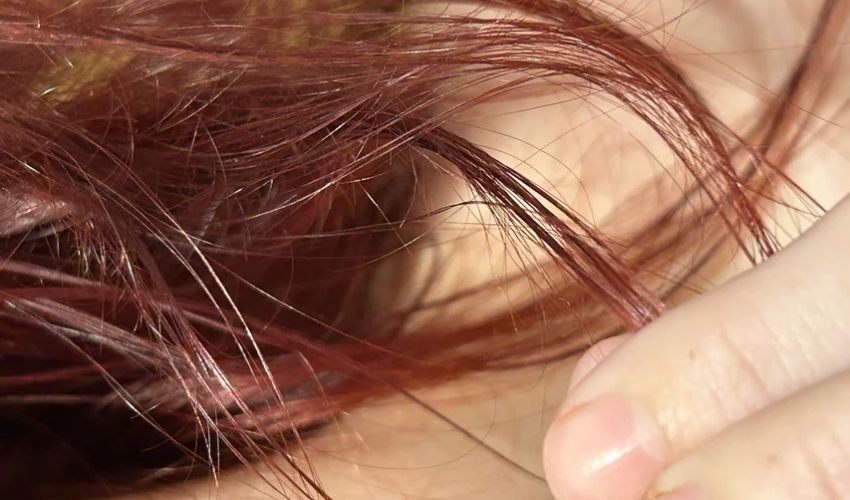
How to Determine If You Have Coarse Hair
1. Family Genetics: Coarse hair often has a genetic component. If one of your parents has coarse hair, there's a good chance you may inherit this hair type as well.
2. Thickness: To identify coarse hair, consider the thickness of individual hair strands. You can do a simple test by plucking a strand of your hair and rolling it between your fingers. Coarse hair typically has a thicker circumference compared to normal hair. If it feels thicker than a sewing thread, you likely have coarse hair.
3. Ethnicity: Coarse hair is more commonly found among certain ethnicities. It is a natural hair thickness that is often shared within specific ethnic groups.
4. Texture and Manageability: Importantly, having coarse hair does not necessarily mean that your hair is rough or difficult to manage. The texture of your hair, whether coarse or not, can be influenced by factors like moisture, hair care routines, and styling techniques.
5. Potential Causes: If you've recently noticed a change in the thickness of your hair, it could be due to factors such as hair growth medications, steroid use, hormone imbalances, or thyroid issues. It's essential to consider these factors when evaluating your hair type.
6. Tailored Hair Care: Depending on your hair's volume and texture, it's important to choose the right hair care products and routines. Understanding your hair type allows you to provide the proper care and maintenance it needs to look and feel its best.
By considering these factors and performing a simple thickness test, you can determine if you have coarse hair and take steps to care for it effectively.
4. How to make coarse hair soft and silky
To achieve a healthier and shinier look for your coarse hair, there are several essential hair care practices you should incorporate into your routine: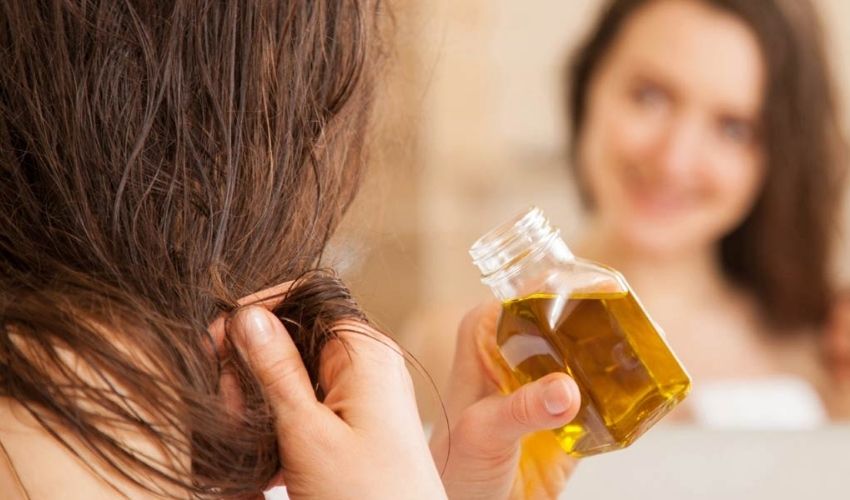
How to make coarse hair soft and silky
4.1 Leverage Conditioning Creams and Products
Conditioning creams and similar hair care products play a pivotal role in rejuvenating your hair's health and texture. If your hair feels coarse or lacks its natural luster, the application of these specialized formulations can make a noticeable difference.Furthermore, certain frizz-control conditioners contain nourishing proteins and smoothing agents that can help tame unruly hair, leaving it looking sleek and shiny. By incorporating these hair care products into your routine, you can achieve a smoother and more vibrant hair texture.
4.2 Avoid Alcohol-Based Hair Products
Understanding the right care for coarse hair includes knowing which products to use and which ones to steer clear of. Many hair products, including sprays and gels, contain alcohol as a key ingredient, offering temporary shine but often leading to moisture loss and hair damage over time.For those with coarse hair, it's particularly important to avoid alcohol-based products as their hair can quickly become dry and susceptible to damage. When selecting styling products, opt for those with limited to no alcohol content.
It's worth noting that not all alcohols are harmful to hair. Fatty alcohols like stearyl alcohol and cetearyl alcohol, which mimic the body's natural lipids, are safe and even beneficial for hair.
4.3 Minimize Heat Styling
Excessive heat styling can have detrimental effects on coarse hair, leaving it dry, frizzy, and difficult to manage. To maintain the health of your hair, it's essential to limit heat styling whenever possible.When blow-drying coarse hair, ensure that the dryer is kept at least 5 inches away from your hair. Avoid concentrating the heat on a single section of your hair for more than 5 seconds. By following these precautions, you can prevent unnecessary damage and preserve the quality of your coarse hair.
4.4 The Importance of Regular Hair Trims
Getting your hair trimmed every two months is essential for maintaining healthy hair, regardless of your hair type. Regular trims not only help eliminate split ends but also address damage caused by styling, blow-drying, and bleaching, particularly at the ends of your hair.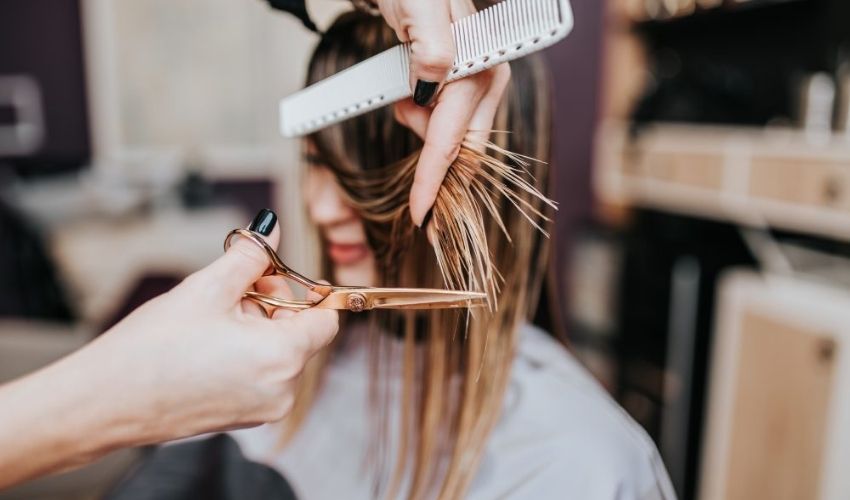
The Importance of Regular Hair Trims
It's advisable to schedule an appointment with a hair care professional every 2-3 months to ensure your hair remains in optimal health and condition.
4.5 Utilize Deep Conditioning Masks
Deep conditioning hair masks are your secret weapon to transform rough, coarse hair into a softer, healthier, and shinier mane. Craft your own deep conditioning masks using natural ingredients such as honey, aloe vera, olive oil, coconut oil, and avocado.For optimal results, apply the hair mask at night. You can also indulge your hair with a rejuvenating massage using a blend of coconut, jojoba, and avocado oils. This oil massage effectively banishes dryness and frizz while infusing your hair with essential moisture.
Make it a weekly ritual to massage your hair or apply a hair mask. However, if your hair is particularly thirsty for moisture, consider pampering it with this treatment twice a week.
4.6 Nutrition for Hair Health
Maintaining a well-balanced diet rich in essential vitamins and nutrients is key to promoting hair growth and strengthening coarse hair. Some foods to consider adding to your diet for healthier, shinier hair include chia seeds, whole grains, lemons, walnuts, spinach, green tea, tomatoes, soy, and coconut oil. These dietary choices provide valuable vitamins such as A, C, D, and E, along with iron, niacin, and biotin, all of which play crucial roles in supporting hair health.
Nutrition for Hair Health
Embrace a nourishing diet, and you'll be taking a significant step toward enhancing the overall appearance and vitality of your coarse hair.
4.7 Choose the Right Hairbrush
The choice of a suitable hairbrush plays a pivotal role in managing frizz and preventing tangles, especially for those with coarse hair. While some individuals prefer brushing their hair when it's wet to reduce frizziness and future tangles, research indicates that combing damp hair may be less damaging. Therefore, it is advisable to comb dry hair from root to tip.Combing also serves the essential function of evenly distributing the hair's natural oils throughout the strands, which helps maintain moisture. To style coarse hair effectively, consider using wide-toothed combs or brushes with rounded tips, as they are gentler on the hair. Nylon bristle brushes work well for detangling coarse hair. Ensure your choice of brush type and size aligns with the thickness and density of your hair for optimal results.
4.8 Opt for a Silk Pillowcase
Hair care experts recommend sleeping on a silk pillowcase to prevent hair tangles and damage. Silk offers a smoother, less friction-prone surface compared to cotton pillowcases.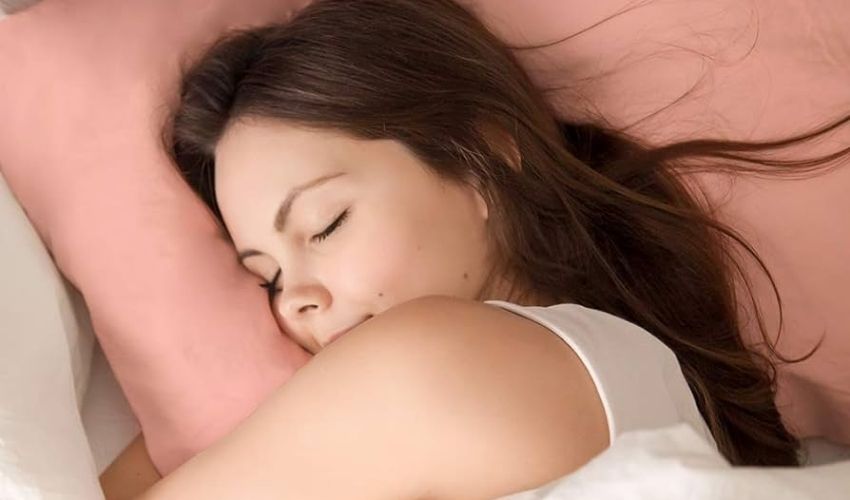
Opt for a Silk Pillowcase
Unlike cotton, silk doesn't absorb excessive moisture, allowing your hair to maintain its natural shine and oil levels. This simple switch can help protect the health and appearance of your coarse hair.
5. Conclusion
In conclusion, coarse hair is characterized by its thicker individual strands, making it distinct from thick hair, which refers to the density of hair follicles on the scalp. Coarse hair can be influenced by genetics but may also develop due to various factors such as heat styling, nutritional deficiencies, medications, or hormone imbalances.Understanding the unique characteristics of coarse hair is the first step in proper care and maintenance. With the right hair care regimen, including deep conditioning, a nutritious diet, the use of appropriate hair products, and gentle styling techniques, individuals with coarse hair can achieve healthier, shinier, and more manageable locks.





_cr_380x240.jpg)
